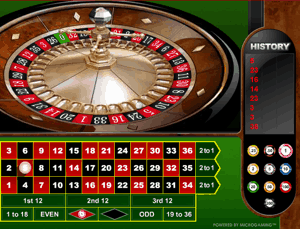If you've ever been to a brick & mortar casino and spent any amount of time at the roulette table, there's a strong chance that you've witnessed the gamblers fallacy in action. In pretty much any casino around the world, the more times a black number is spun in a row, the more people will start betting on red. But why do they do this, and is there any benefit from it?
Many people believe that because red numbers and black numbers have the same probability of being spun, they should come up a comparable number of times. So when there have been ten black numbers in a row, people believe that this must be followed by a red (or visa versa).
The same theory can be, and often is, applied to any random event - such as flipping a coin or rolling a dice. But, as many gamblers quickly discover, it just isn't true.
What believers in the gamblers fallacy fail to recognise is that the events that have preceded have no effect on future events. If an unbiased coin has been tossed 10 times and has come up heads each time, the probability of the next toss being heads is still 50-50.
We can explain this mathematically as follows. The chance of tossing a coin and getting heads is 50-50, which we can write as 1/2 or 0.5. The probability of getting two heads in a row is the probability of one head multiplied by the probability of getting another head:
1/2 x 1/2 = 1/4
So you have a 1 in 4 chance of flipping a coin and getting two heads. Similarly if you were to toss a coin 10 times, the probabilty of all 10 being heads is:
1/2 x 1/2 x 1/2 x 1/2 x 1/2 x 1/2 x 1/2 x 1/2 x 1/2 x 1/2 = 1/1024
However, if you have already tossed the coin 9 times and got heads each time, the probability of the 10th toss being heads is:
1 x 1 x 1 x 1 x 1 x 1 x 1 x 1 x 1 x 1/2 = 1/2
Because some of the events (coin tosses) have already happened, their probability of occurring is '1'. There is no way that the 9th coin toss could be tails, because it is in the past - and it cannot change any more than you can change what you had for dinner last Thursday.
Similarly, the probability of drawing the same set of lottery numbers two weeks in a row is astronomical. But last Fridays lottery numbers have just as much chance of being drawn again this Friday as any other combination. This is because last Fridays numbers have already been drawn, recorded and paid out and have no impact on the next drawing.
So next time you're at a casino and the 'history' board is showing all red numbers, resist the temptation to put all your chips on black and bet the way you normally would. Or join in the table camaraderie and empty your wallet on black, so long as you realise that there is just as much chance of it spinning red.
